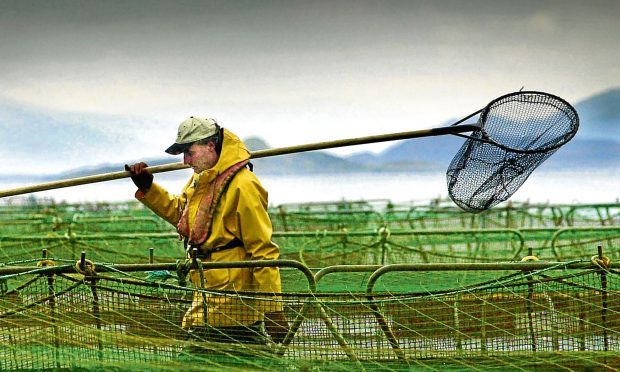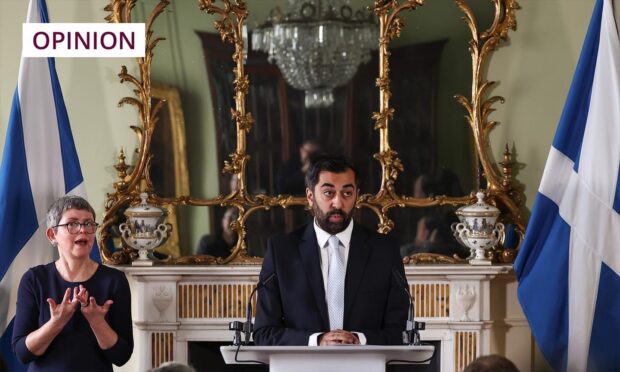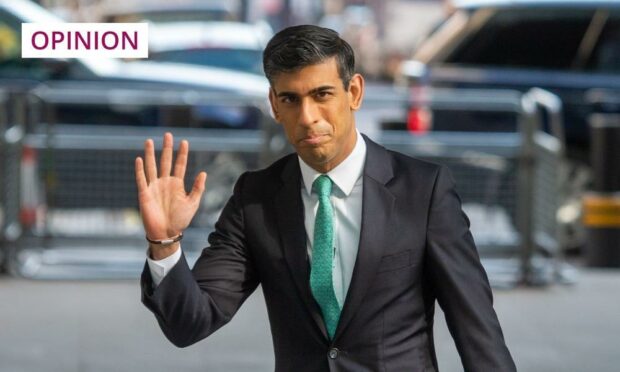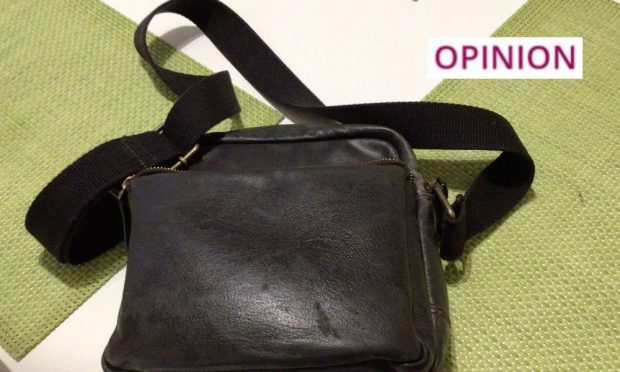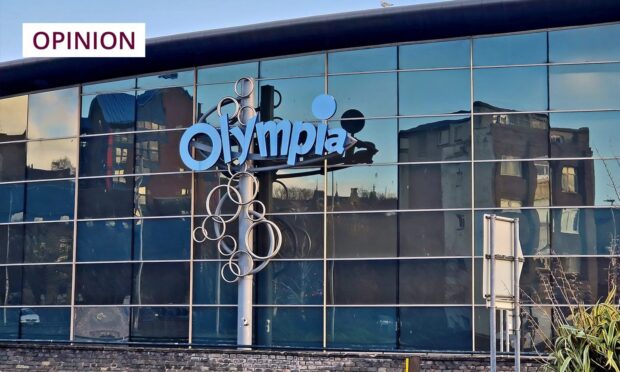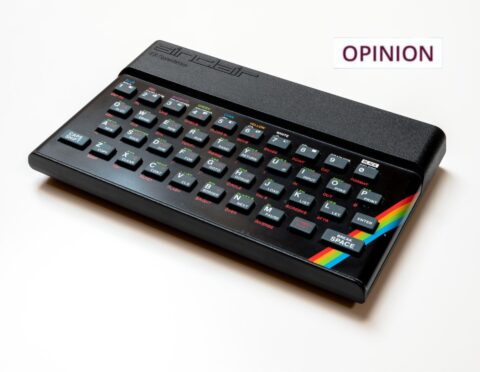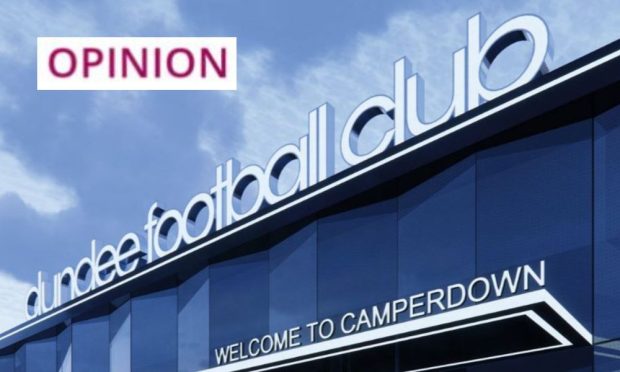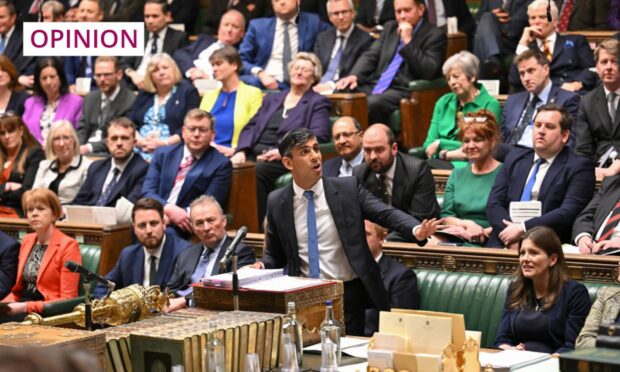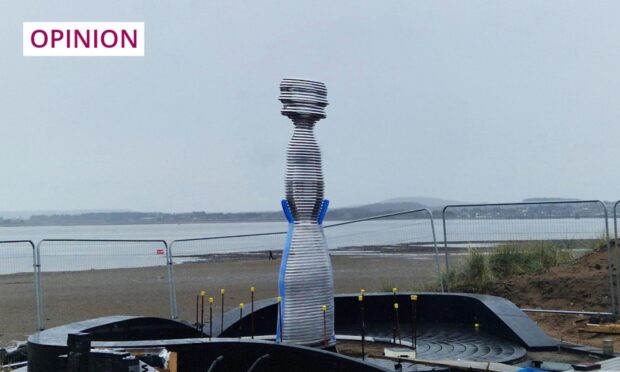Sir, – If Jenny Hjul (“Progress is in our hands”, The Courier, March 28) wants to see the salmon farming industry make economic progress, then she should embrace the debate over its failings rather than attempting to shame its critics.
There is no doubt the sector has seen strong economic success, but targets to double production by 2030 put the environment that sustains the health of the industry at risk.
Salmon farming has major problems, including catastrophic sea lice infestations and fish disease, environmental pollution of the seabed, impacts on dolphins through the use of acoustic deterrent devices, long-term scarcity of sustainable sources of marine feedstuff, damage to marine habitats and impact on wild salmon populations through genetic mixing.
It’s not just anglers and environmentalists who are vocal critics, the Scottish Parliament’s cross-party environment committee recently produced a damning report on the farmed salmon sector’s failings.
With the right attitude and industry leadership, the sector can address its problems and continue to grow.
There are many fish farms that, for example, don’t shoot seals and have found better technical solutions to seal predation problems.
These farms may continue to enjoy a lucrative US export market, those that don’t move with the times will not.
Shooting the messenger along with the seals will not address the problems.
Mark Ruskell.
MSP – Mid-Scotland and Fife Region,
Scottish Green Party,
67a King Street,
Stirling.
Balance is not in SNP’s favour
Sir, – In his Monday Matters column, (“Is the SNP getting bad press? An easy answer to a difficult question”, The Courier, March 26) Stefan Morkis opines that the SNP are paranoid about news coverage, and unhappy at anything less than fawning media coverage of their achievements.
I note that no SNP representatives are actually quoted in this opinion piece, leaving the suspicion that both the narrative and language are his alone.
Mr Morkis harks back to the 2014 referendum, claiming that scrutiny of the YES group was a legitimate response by newspapers and opposition parties to their campaign.
There’s the rub, however, as there was no such forensic scrutiny of Better Together claims.
The Courier’s sister publication, the Sunday Post, serialised referendum specials at this time, with the title, “Independence On Trial”, which included a cartoon portraying a courtroom, with Alex Salmond in the dock and Alistair Darling as prosecuting counsel.
In case anyone missed the point, a jury was present, suspiciously eyeing up the former First Minister.
There was not, as far as I’m aware, a balancing “Union On Trial” series, with roles reversed.
Television too was culpable of such behaviour, with the former BBC reporter, Paul Mason, stating, “Not since Iraq have I seen BBC News working at propaganda strength like this.”
During the final weeks, as the polls tightened, the BBC allowed Gordon Brown copious air time to make promises he couldn’t deliver. Derek Bateman, another former BBC employee, has addressed the origins of the SNP/BAD stories in his blog, Manipulating The Media. I suggest Mr Morkis reads it.
Even in a civil service all Scots pay for, the attitude of then head Sir Nicholas McPherson was that in the matter of the Scottish referendum, “…the normal rules of civil service impartiality simply do not apply”.
Perhaps, in addressing this unrepresentative imbalance, The Courier chief reporter will prove me wrong and give us a critique of the Tories, Labour and LibDems in future Monday Matters columns.
Ken Clark.
15 Thorter Way,
Dundee.
Aspiration vs the reality
Sir, – Your correspondent Ken Clark (“SNP has always opposed fisheries policy”, Letters, March 28) informs us that the SNP “have been opponents of the CFP for decades”.
It may be the case, but to nil effect.
And, the SNP at the same time, argues that the UK should remain in the EU or, at the very least, remain in the EU Single Market and Customs Union.
This essentially amounts to staying in the EU, but without a vote.
That preference means the Common Fisheries Policy would continue to be controlled by Brussels, whether the SNP is opposed to it or not.
The two positions are entirely incompatible.
I’m surprised that Mr Clark appears not to understand that.
Or, if he does, he must be simply following the Scottish nationalist trend of obfuscation in matters where aspiration conflicts with reality.
Derek Farmer.
Knightsward Farm,
Anstruther.
Racism? Hardly. It’s just unfair
Sir, – I reply to Joyce Ptaszek (“Yes to home made passports”, Letters, March 30) in which I am accused of being a racist.
I would point out that calling those who are getting worked up over the colour of a passport and that it will be printed in the EU “relics of empire” is not racist, but something that describes those who long for a Britain of the Victorian era.
To call someone a racist without knowing anything about their background or political philosophy displays a complete misrepresentation of my letter.
Ms Ptaszek claims to be the defender of jobs in the UK.
I think she should concern herself with the projected 80,000 job losses in Scotland predicted by The Fraser of Allander Institute on the UK leaving the EU.
To accuse a person of racism is a serious matter and the word is often bandied about too readily. Racism and bigotry is a serious problem in Scotland and should never be levelled at anyone unless you have proven examples where persons target people on colour, religion, ethnicity or sexual orientation – none of which was mentioned.
I would have thought the passport jobs were going to the EU due to EU regulation on contract bidding.
The UK signed up to the EU 50 years ago and is still a member so they have to abide by the rules they signed up for until they leave.
As a firm believer in EU membership my credentials are definitely not racist nor protectionist but are firmly based on equality and fraternity.
Bryan Auchterlonie.
Bluebell Cottage,
Perth.
Only strength in UK is England
Sir, – The separatist Prime Minister of the UK talks of the strength of the strong UK union of four countries but seems to have somehow missed the bigger strength of 28 countries in the EU union.
The strong union of the UK’s four countries is of course an illusion.
With one part of it (England) six times the size of the other three put together, the only strength in the UK is that of England’s, as all decisions in the UK are determined by England’s needs.
David McEwan Hill.
1 Tom Nan Ragh,
Dalinlongart,
Sandbank,
Argyll.
Leadership through ability
Sir, – The Electoral Reform Society wants legislation to ensure at least half of parties’ candidates are women when they fight Scottish and council elections.
I have no difficulty with that, provided all would-be politicians and councillors pass a literacy and numeracy test as to their education standards. An IQ test should be mandatory.
They will be paid by taxpayers so the taxpayers are entitled to the best, not party members chosen for their loyalty and rewarded with a salary far beyond their ability.
Clark Cross.
138 Springfield Road,
Linlithgow.
